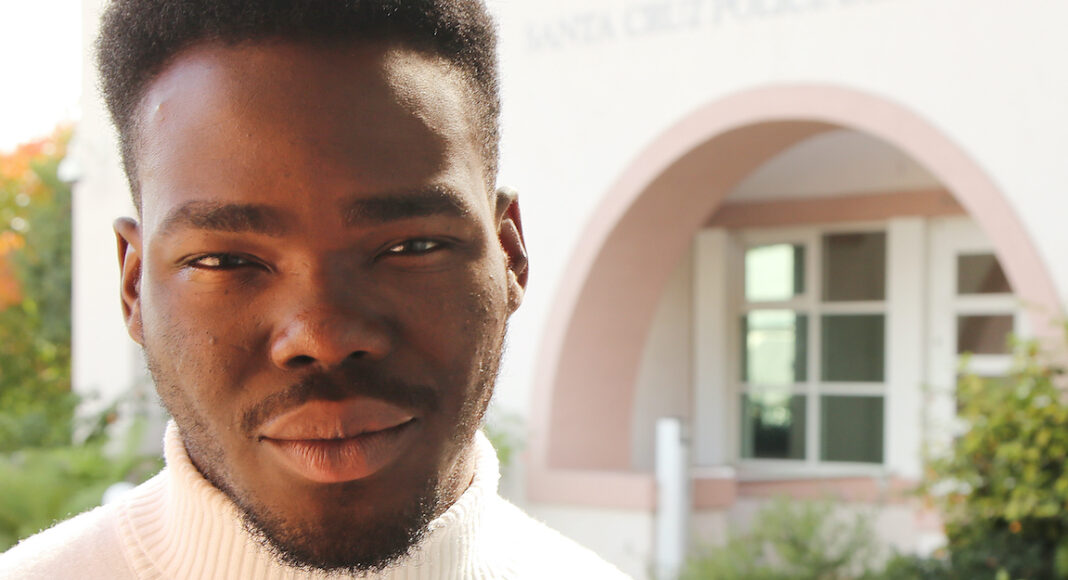The city of Santa Cruz is in something of a transition phase—with an interim city manager and an interim police chief—and will be for a couple more months.
Santa Cruz Water Director Rosemary Menard has been serving as interim city manager since August after the retirement of Martín Bernal. In August, Fire Chief Jason Hajduk also announced plans to retire. And after the resignation of Police Chief Andy Mills last month, Bernie Escalante assumed the role of interim police chief, a position he’ll continue to hold through early 2022—and possibly much longer.
Santa Cruz Councilmember Justin Cummings says he thinks Mills did a good job leading the Santa Cruz Police Department (SCPD), but the councilmember is excited to see what Escalante brings to the job in his new interim role.
“I’m pretty excited about his appointment, and we’ll see how the department is run under his leadership. And I hope he applies [for the permanent position] when the time comes. The community is restless to see us carry forward a progressive policing model,” Cummings says.
Mills and Cummings—who served last year as the city’s first Black male mayor—gained nationwide attention when a photograph circulated of the two of them kneeling side by side at a Black Lives Matter protest last year.
Mills, who spent four years with SCPD, seems to believe his departure will leave a big void in Santa Cruz. On his way out of town, Mills—who did not respond to requests for comment—opined on KSQD Radio that he’s “probably the most progressive” police chief Santa Cruz will ever have.
Cummings says he certainly hopes that isn’t the case, although he respects Mills’ track record. Mills started some important discussions, Cummings says, and engaged with the community, but there’s more work to do.
Mills began his new job as chief of Police in Palm Springs on Monday, Nov. 8.
No decisions will be made about the future of the local police chief until after incoming City Manager Matt Huffaker takes office in January. There could be a number of options on the table, and they may not be mutually exclusive. Possible options would be to appoint Escalante to the post long-term, give him a trial run as chief to see how it goes, hire a recruiting firm or put together a community engagement process—like a hiring committee. It was a special committee that hired Mills in 2017. Mayor Donna Meyers says the Santa Cruz City Council’s plan is to work with the new city manager to fill both the police and fire chief positions.
Deborah Elston is the founder of Santa Cruz Neighbors, which has partnered with SCPD on public safety initiatives, and she hopes Escalante does get the job long-term. Elston praises Escalante’s strong communication skills, as well as his collaborative style, all of which could help strengthen longstanding partnerships that she hopes Santa Cruz will get back to.
“At this point, with where we are as a city, I really believe that Bernie is the person to step in as chief permanently. I think, if he does get the permanent role, it will be a great opportunity to re-engage and to reinstate some of the things that were being done before,” Elston says.
Escalante did not reply for comment or answer GT’s questions about whether he is interested in serving as chief of SCPD for the long term.
Some community members are hoping for a thorough discussion and outreach process. Cummings says he has been hearing from the community that people want a hiring process at least as robust as the one that hired Mills.
Ayo Banjo, a research fellow at UCSC, says that process should include multiple community engagement meetings for feedback about the qualities that Santa Cruz residents want to see in their next chief.
There’s work to do, Banjo says. He and many of his fellow community organizers want a police chief who will get serious about exploring ways to supplement—or replace—uniformed officers with additional social workers, trained in behavioral health.
“We are looking for somebody who is not only going to embody values of community, but who is willing to really walk the walk and engage with policing efforts that will reduce potentially lethal outcomes. It’s the police’s job to engage with researchers,” says Banjo, who has been planning a conference about ways to improve law enforcement. Mills, he says, agreed to speak at the event.
Beverly Brook, a volunteer chaplain for Santa Cruz County Juvenile Hall, remembers mostly positive things about Mills’ tenure. She does admit to having her disagreements with the former Santa Cruz chief. That includes when Mills wrote an op-ed about how he believed the state’s shifting prison population might impact Santa Cruz.
But there were certainly moments when Brook, who served on the Chief’s Advisory Committee, respected Mills—including what transpired after she casually mentioned that she was reading White Fragility and also leading a group study about the book. Inspired by Brook’s endorsement, Mills purchased copies of the book for everyone on the committee to read, so they could discuss as well. “I thought that was great,” Brook says.
At the end of the day, being a police chief in a town as polarized as Santa Cruz is a tough job, Brook says. And she says Mills was an improvement over his more conservative predecessor, Kevin Vogel.
But she also believes SCPD could continue to move in a more progressive direction. She suggests that maybe one day Mills will be remembered as the city’s “bridge” chief.
“You know how when you break up with someone, you go out with that bridge person, that transition person? And maybe that’s the role Andy fit for us, as a city,” Brook explains. “We needed someone totally different, a visionary—and I think Andy was, to some extent—and now, I hope that the city continues to move forward.”














